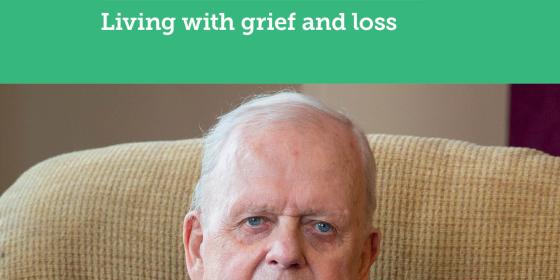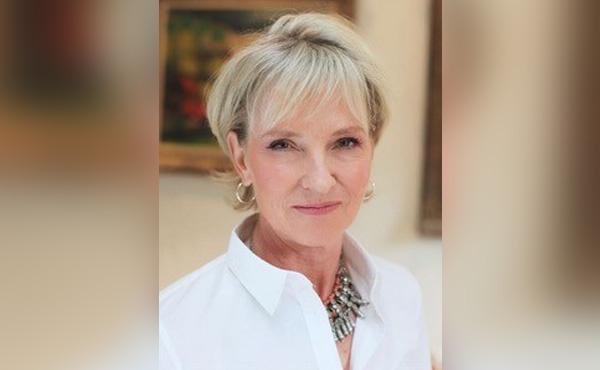
The bereaved can often feel shunned in this country. One widow, who shared her desperately lonely experience for our recent research on losing a partner, recalled how even those closest to her felt discomfort as she expressed her grief.
All too often, she told us, she’d end up begrudgingly “comforting the comforter”.
Hundreds of thousands of people are bereaved in the UK every year and, as our population ages, the number of those grieving for partners, children, siblings and friends is set to increase. Yet an Independent Age survey has found that almost half of us find the topic of death so uncomfortable that we prefer to skirt around the topic using vague terms and euphemisms.
Having worked as a psychotherapist specialising in grief for more than 25 years, Julia Samuel believes that it’s profoundly misunderstood. Her moving book, Grief works: stories of life, death and surviving, is full of courageous tales from her clinic and was born out of a desire to show that it’s always possible to heal from grief, however devastating.
She also believes that, based on her experience, we would all benefit greatly from talking more openly about death and grief.
“I think the ignorance and misunderstanding about death and grief means that, when we are faced with it, we are ignorant and those around us are ignorant, which means we often don’t get the support we need,” Julia tells me. “It’s the level of support following a death that predicts our outcome, not the circumstances of the death, so it’s a crucial factor.”
Julia’s links with the Royal Family - she was a friend of Princess Diana and is a godmother to Prince George – have helped to remind us that none of us is exempt from bereavement, as does her role as Founding Patron of Child Bereavement UK for which she was awarded an MBE.
The ‘magical thinking’ around death
Despite this, death is still taboo in society. The Independent Age survey found that almost half of those asked didn’t even feel comfortable sitting down with their elderly parents to discuss their plans and final wishes. In fact, over a third of this group said they wouldn’t dream of broaching the topic with their parents for fear of reminding them that death was on the horizon.
“There is a kind of magical thinking around death,” Julia says. “People think, ‘If I don’t think or talk about it (and I avoid concrete terms like ‘death’, ‘dying’, ‘died’), then perhaps it won’t happen to me or the person I love. If I do think about it, perhaps it will hasten my death.’ All of this is unhelpful. The more we befriend what we fear, the less fear we have when it happens.
“Many of the dire consequences that occur in families are caused from regrets and misinformation, and the root of that is not talking about death,” she adds.
At Independent Age, we have also found this to be true. We produce free advice guides and resources to help families start these vital conversations. Finding the courage to do so can reap profound benefits, even - according to Julia’s book - affecting our psychological and physical wellbeing.
She says that those in good health have been found to have less anxiety about death and that acceptance of death “has been shown to have a positive impact on health, vitality and wellbeing in general.”
One difficulty is that we live in a society in which we are usually expected to be able to maintain our composure. Another widow we spoke to for our research on losing a partner talked about returning to work after compassionate leave. She felt her experience had been positive, but only because she had sent her colleagues a message beforehand asking them not to mention her bereavement, so abhorrent was the thought of breaking down in front of them.
The importance of language
The topic is so sensitive, in fact, that there are hundreds of words and metaphors for death categorised in the English language, giving us a plenty of ways to soften the blow. Even so, Julia cautions against assuming that it’s always better to shy away from telling the truth.
“If we use euphemisms like ‘passed over’, ‘lost’, ‘gone to a better place’, we are using language to try and soften the brutality of the reality of the death,” she says. “For some people that matches their way of being, but for most people it undermines the level of their pain and their reality. Their partner, son, brother, mother hasn’t ‘gone to a better place’, they have died. Those are two very different realities.
“People often feel furious when those terms are used,” she continues, “as it can feel like a diminution of their experience. Also the language of ‘better place’, ‘lost’… most likely doesn’t fit with what the bereaved person believes. Their ‘better place’ is to be alive and well, so it can incur fury or, at the very least, a sense of being misunderstood. Either way it’s undermining.”
Learning to live with loss
The truth is, there’s no quick fix for grief. One particularly moving story in her book is that of Gordon – a proud man in his late 80s. Like so many of the older people we support at Independent Age, Gordon had outlived all those closest to him.
With no one else to talk to, he attended her clinic as he was feeling “lost” after his wife’s sudden death and his own diagnosis of inoperable cancer. Too angry to open up at first, she describes the sheer commitment it took on both their parts for a deep and lasting trust and acceptance of his fate to occur.
“When someone has died, it is the love and connection to others which helps the most,” Julia says. “I think my main role as a psychotherapist is to offer the space and place where the person who is grieving can be listened to attentively - be heard for all they feel - and help them find a way of accommodating the death. It isn’t about forgetting and moving on, but remembering and learning to live with the loss.”
She adds, “The agent of change to enable that process, is pain. It is pain that forces us to face the reality of death.”
“The task of grief is, over time, to face that reality and find a way of living with it, and loving and engaging with life again.”
Independent Age is an older people’s charity. To find out more and order our free advice guides, Planning for the End of Life, and Coping for Bereavement, visit the Talk About Death campaign homepage.
Read more articles on this topic.
You can order Julia’s book, Grief Works: stories of life, death and surviving, at www.griefworks.co.uk
